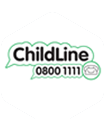A level German Years 12 & 13
Specification
AQA - The specification and assessment structure can be found at the link:
https://www.aqa.org.uk/subjects/languages/as-and-a-level/german-7662
As with all subjects in Years 12 and 13, students should expect to consolidate upon work covered at GCSE.
The general aims to be achieved in Years 12 and 13 may be summarised as follows:
- Students are able to write and speak relatively fluently in the foreign language.
- Vocabulary and grammatical knowledge are expanded.
- The accuracy of work is improved.
- The need for good pronunciation and intonation is emphasised.
- Comprehension skills are improved.
- Linguistic skills acquired enable students to use language more effectively and spontaneously and to manipulate language accurately.
- Linguistic skills are allied to the ability to analyse and to structure arguments.
- Study of the language provides an insight into the culture and customs of the country with visits abroad being encouraged.
The A Level exam is taken in its entirety at the end of Year 13.
There are four content areas to cover:
Year 1
- Aspects of German-speaking society, current trends: the changing state of the family; the digital world; youth culture, fashion and trends, music, television.
- Artistic culture in the German-speaking world: festivals and traditions; art and architecture; cultural life in Berlin past and present.
Year 2
- Multiculturalism in German–speaking society: immigration, integration, racism.
- Aspects of political life in the German-speaking world: Germany and the European union; politics and youth; German reunification and its consequences.
A Level Assessment in German
Paper 1 Listening, Reading and Writing (40%)
This paper tests both listening and reading comprehension. There is translation from English to the target language based on a given passage and a translation from the target language to English.
Paper 2 Writing (30%)
Essays in German (either on 2 books or 1 book and 1 film – 2 questions set on each work).
Paper 3 Speaking (30%)
21-23 minutes including 5 minutes’ preparation time at the start. The format will be as follows:
- 5-6 minutes on a stimulus card – cards relate to specification themes. Questions relate to candidate’s knowledge of the topic in target language country as well as own opinion.
- 2 minute presentation of individual research project (must relate to target language speaking country) followed by 9-10 minutes discussion.
The research project demonstrates the ability to research using range of sources as well as the Internet. Candidates may choose a subject linked to themes in the specification.
Why languages?
Study of a language in years 12 and 13 therefore opens horizons beyond the specification offered at GCSE. The approach is designed to be more mature in terms of both language and content, with an emphasis upon more spontaneous use of language. Many pupils, who found the content of the GCSE specification somewhat constricting, relish the challenge of expanding their language and addressing more sophisticated topics. Class sizes tend to be relatively small and this provides the opportunity for students to be supported more comprehensively. The German department is extremely well-equipped with literary texts, DVD and CD libraries.
A language is an asset allied to any skill or discipline and has clear applications within the world of business at all levels including management and the entrepreneurial field. The same applies to, for example, the international legal system, work within the travel and tourism sector, work in the diplomatic service, local and national government, security, the retail industry or careers such as journalism. Language study could clearly lead to a career in translating as well as teaching, either secondary or primary. Where the latter is concerned, a male teacher with language skills would be particularly valued.
There are an increasing number of joint honours degrees at university level offering study of a language allied to another subject and with the possibility of studying or working abroad for one year as part of the course. This applies not only to language study with others Arts subjects, but also Business, Law and even subjects such as Engineering and Computer Studies. The study of French and German offered at King’s prepares students for future acquisition of other Latin or Germanic based languages. Students who have studied A level language at King’s have gone on to study languages other than German as part of their languages degree.
Studying foreign languages at school will set King’s pupils apart from many other students in this country and will make them an attractive potential employee in many higher-level and better paid positions. Male candidates able to offer advanced level language in the working environment will be much sought after, particularly in a world where international communication and travel is becoming more and more commonplace. There is currently a high demand for employees able to offer language skills and only a small supply of candidates able to satisfy this demand.
For candidates who already have a good GCSE result, the building blocks for advanced level study are already in place in terms of some of the basic principles of how languages work – for example, the concept of tense, gender and agreement. The two year course to A level builds upon this prior knowledge, but clearly also provides the opportunity for very significant linguistic progress to be made by the end of Year 12 and, more particularly, Year 13.
Year 12
| Topic | Further details about the topic | Skills | |
|---|---|---|---|
| Autumn Term | |||
| 1 | Orientierung, Freundschaft, Gesundheit |
Zeitgeist (O, 1, 2) |
Listening, reading, writing |
| 2 |
Zu viel Info, die Welt der Kommunikation |
Zeitgeist 3,4 |
Listening, reading, writing |
| Spring Term | |||
| 1 | Freizeit, das Alltägliche |
Zeitgeist 5,6 |
Listening, speaking, reading, writing |
| 2 |
Sport, Tourismus |
Zeitgeist 7,8 |
Listening, speaking, reading, writing |
| Summer Term | |||
| 1 |
Gesellschaft: Ausländer, Rechtswesen und Verbrechen |
Zeitgeist 9 |
Listening, speaking, reading, writing |
| 2 |
Gegenwartskultur (Musik, Literatur, Film) |
|
Listening, speaking, reading, writing |
Year 13
| Topic | Further details about the topic | Skills | |
|---|---|---|---|
| Autumn Term | |||
| 1 |
|
Zeitgeist 2 - 1, 2 |
Listening, reading, writing |
| 2 |
Gesellschaft: Armut und Reichtum, Umwelt: Umweltverschmutzung |
Zeitgeist 2 - 3,4 |
Listening, reading, writing |
| Spring Term | |||
| 1 |
Umwelt: Umweltschutz Technik und die Zukunft |
Zeitgeist 2 - 5,6 |
Listening, speaking, reading, writing |
| 2 |
Politik – globale Probleme Deutschland heute |
Zeitgeist 2 - 8,9 | Listening, speaking, reading, writing |
| Summer Term | |||
| 1 |
Revision + past papers |
|
Listening, speaking, reading, writing |
Assessments
| Resources | Topic | Type of assessment |
|---|---|---|
| CAT 1 | Orientierung, Freundschaft, Gesundheit | Listening, reading, writing |
| CAT 2 |
Zu viel Info, die Welt der Kommunikation |
Listening, reading, writing |
| CAT 3 | Freizeit, das Alltägliche |
Mock exam: listening, reading, writing and speaking |
| CAT 4 |
Ausländer, Rechtswesen und Verbrechen |
Listening, reading, writing |
| CAT 5 |
Armut und Reichtum, Umweltverschmutzung |
Listening, reading, writing |
| CAT 6 | All topics | A level examination |
Main Resources
| Resource | Details | Term |
|---|---|---|
| Set texts |
Zeitgeist 1 Zeitgeist 2 |
|
| Support materials |
Parallel text –short stories in German, Penguin books Parallel text – German short stories 2, Penguin books German literature. A very short introduction, by Nicholas Boyle www.spiegel.de , www.suedeutsche.de or any other newspapers, magazines |
|
| Recommended Websites | All |
Enrichment opportunities
| Activity | Day and time or term |
|---|---|
| Individual support sessions in preparation for speaking exams | Arranged as per needs in both Year 12 and 13 |
| Berlin trip | December |







